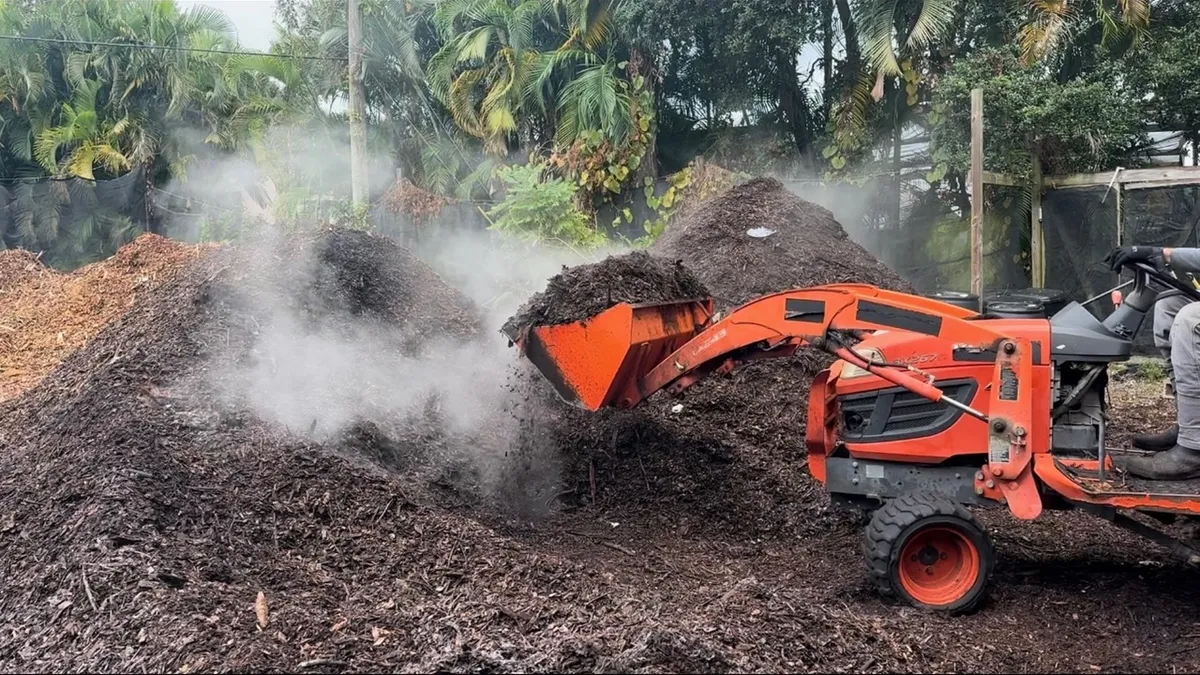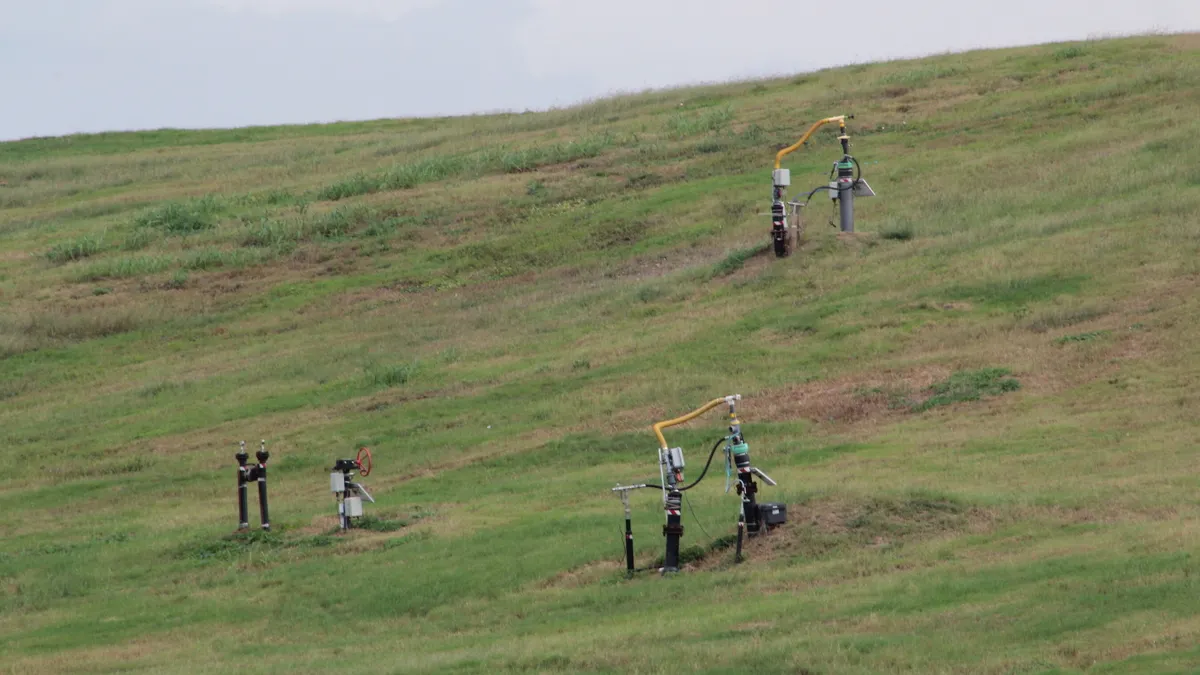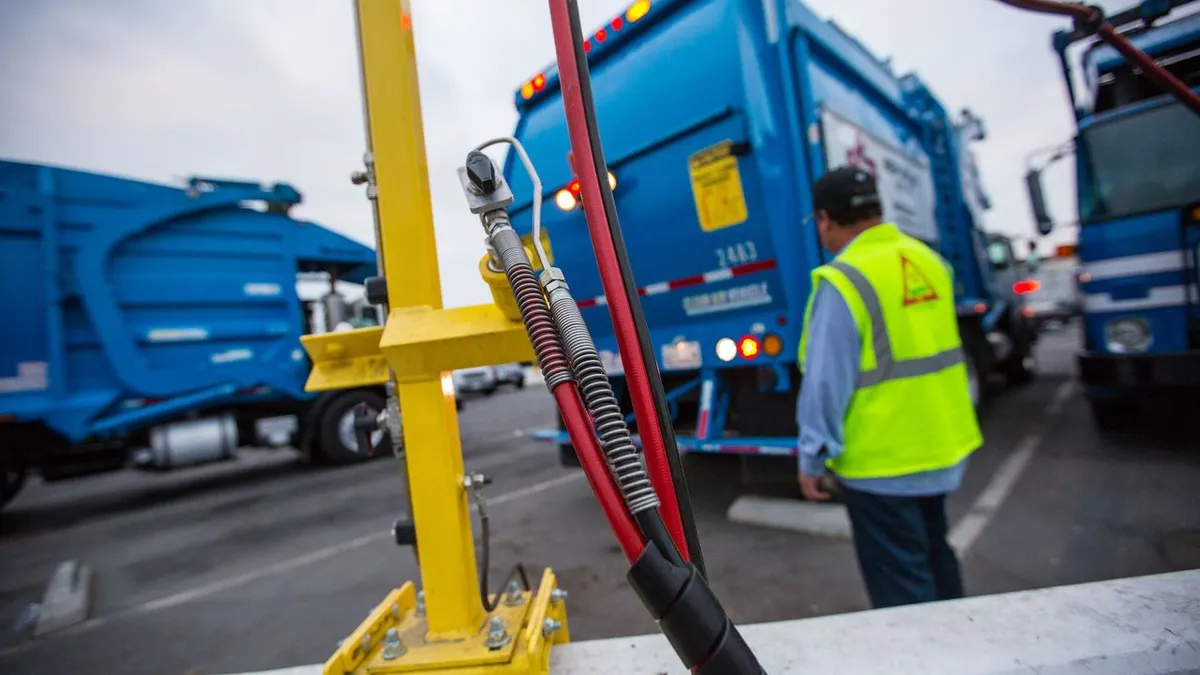Organics recyclers are working to expand their business in South Florida, but say they often face an uphill battle. Emerging concerns about disposal capacity in the region may be opening up new conversations.
Miami-Dade County is debating the construction of a new incinerator after a prior one burned down, Broward County could see a landfill expansion and other areas are also contending with the uptick in waste volumes that comes with population growth. Meanwhile, local composters are reporting growing demand but also running into challenges with regulations.
Just 6% of food waste is collected in Florida per year, based on the most recent data available, creating an opportunity for this growing list of companies to start offering residential and commercial collection service. Because this service can come with a higher cost, organics recyclers aim to differentiate themselves from standard waste service.
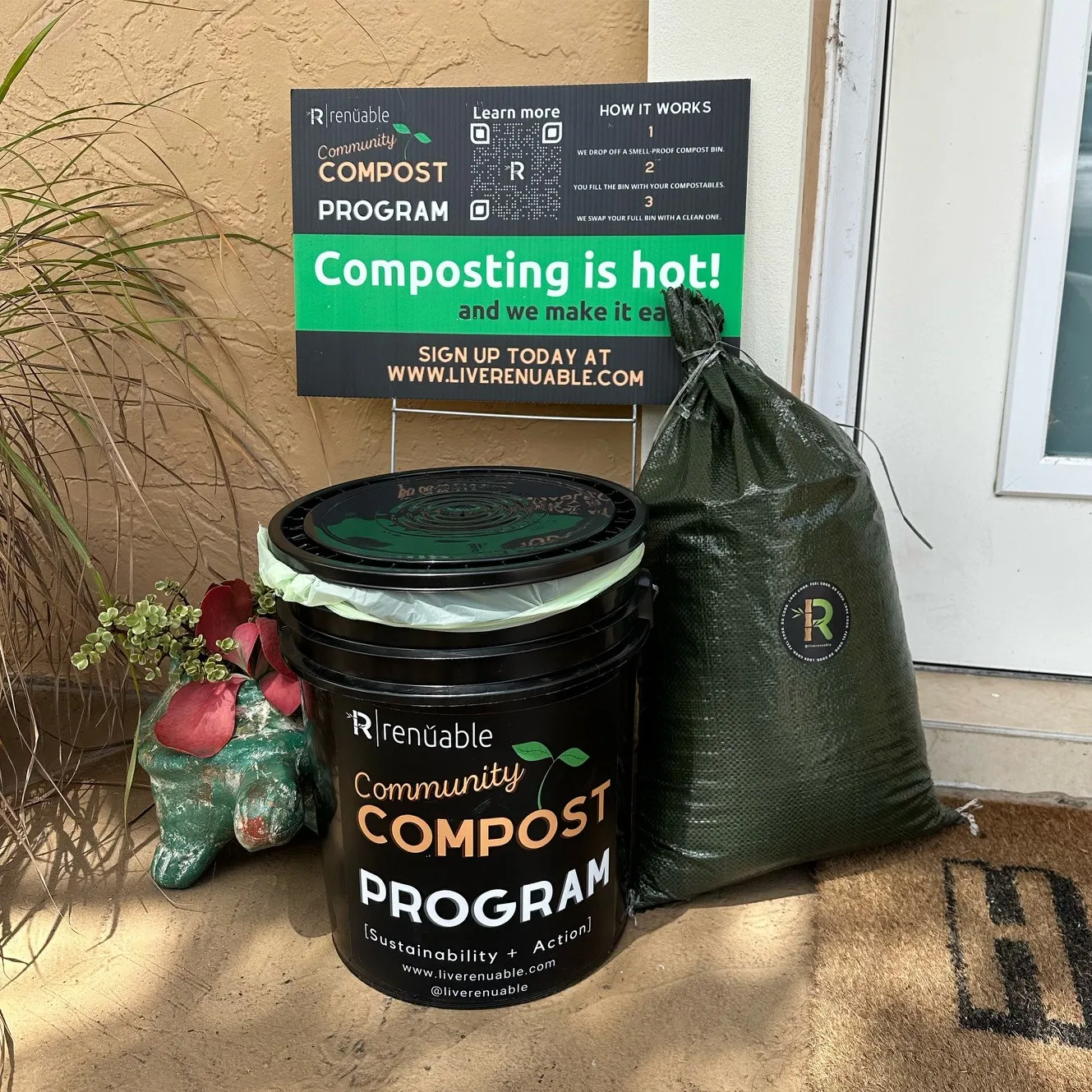
Xavier DeRoos, founder of Renüable, started composting at his condo in 2021. Today, his company processes an estimated 30,000 pounds of material per week with five composting sites in some of the state’s most densely populated counties. It runs a few small trucks for larger clients and does residential collection in Toyota Priuses.
"We focus on a very pleasant user experience. We want our customers to have an easier and cleaner time using our service than they would just using their regular trash,” said DeRoos.
Andy Jo, a co-founder at Soilmate, said the current moment feels like an “inflection point” for multiple reasons, including the discussion about disposal capacity.
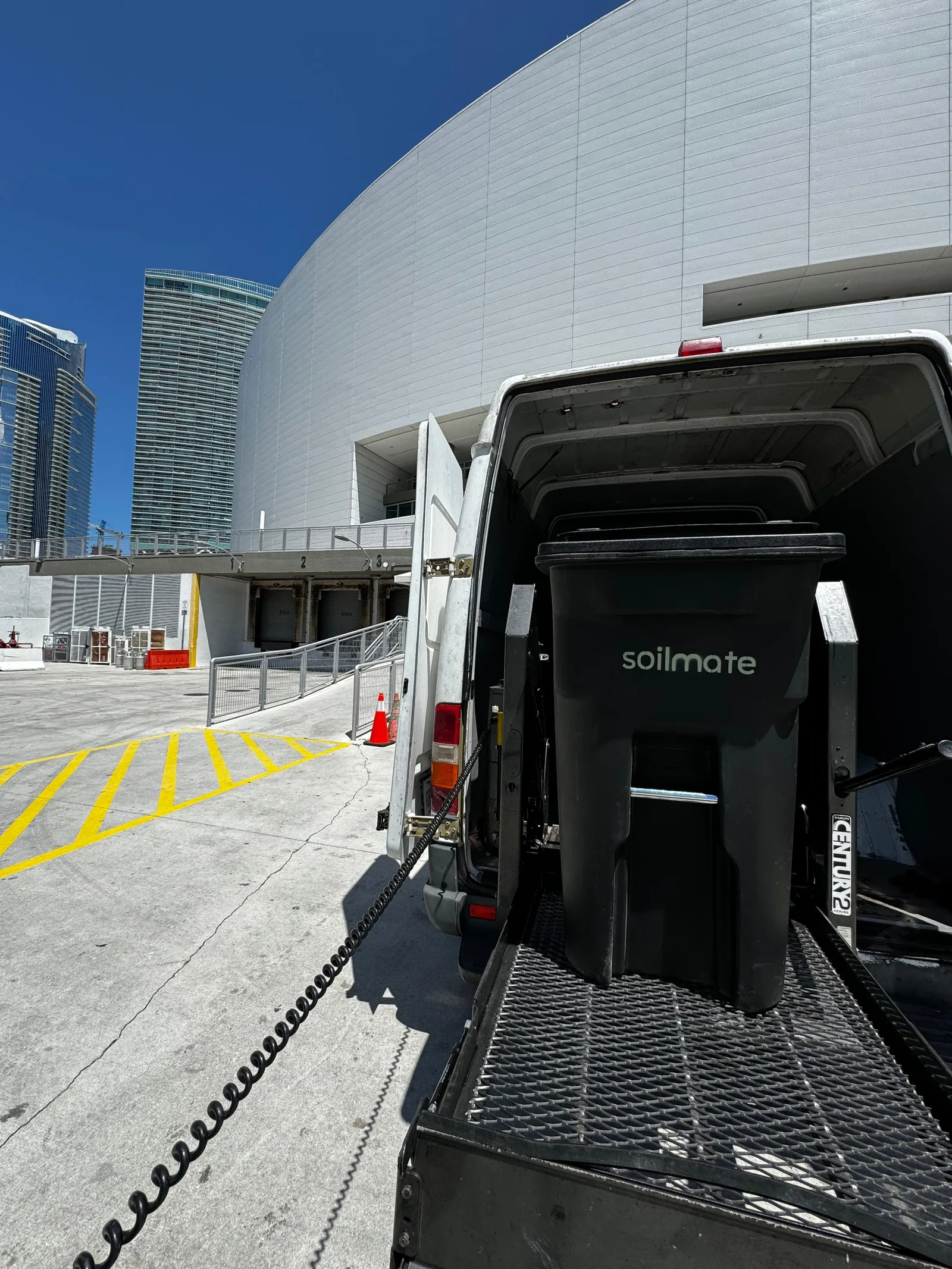
"The more heated the conversation gets around landfills and waste-to-energy plants, the more interest will be harnessed for alternatives,” said Jo.
Soilmate, which started in 2022, has one composting site. Jo said it’s seeing “incredible growth” due in part to an influx of new residents, particularly people from the Northeast and West Coast that are "accustomed to having access to compost services [and] are really surprised to see Miami behind."
Jo said the company is also seeing momentum with small and medium businesses, following prior moves by larger businesses in the area.
For example, locally-based composter Fertile Earth started working with the Miami Marlins over 10 years ago and continued to add larger clients. Today, it operates three trucks servicing a range of clients. Founder Lanette Sobel said part of the challenge to scaling up is how regulatory structures and other factors make it harder to compete against disposal.
"The price to dispose of food typically is way cheaper than it is to compost it, but that doesn't need to be the case,” she said.
Fertile Earth, along with Renüable and Compost for Life, were set to partner with Miami-Dade County on a program to scale this up through a pilot to make compost for county parks. The project was selected for a $200,000 U.S. Department of Agriculture grant, but it didn’t move forward due to a decision by the county.
Miami-Dade’s complex organics history
Florida’s most populous county faces a potentially transformative moment as it considers plans for a new incinerator and other waste infrastructure to replace 1 million tons of lost capacity.
The Miami-Dade Board of County Commissioners passed a resolution last December calling on Mayor Daniella Levine Cava’s administration to prepare a report within 90 days about the potential for expanding composting. The administration has said in the past that it plans to focus on an integrated waste management plan. The county recently confirmed that its Division of Environmental Resources Management took the lead on this composting report, which is currently under review before it’s submitted to the board.
Food and yard waste accounted for an estimated 17% of the tons managed by the county’s Department of Solid Waste Management in FY21, according to a report prepared by consulting firm Arcadis last year.
DERM oversaw a project to dry and compost sargassum — a type of seaweed — in recent years, but the bulk of the county’s focus on organics has been to encourage backyard composting. This was not always the case.
Jeff Kaplan, former deputy director for administration at the Miami-Dade DSWM, said when he worked at the department, during the ‘80s and ‘90s, it offered collection of green waste at the curb and drop-off options were available at county-owned transfer stations. Kaplan said the program was very popular, estimating it diverted 200,000 tons per year of material away from disposal.
"It was a great program,” he said, noting that it was stopped due to state concerns at the time about the potential spread of citrus canker (a bacterial disease). Kaplan feels that such a program would still be useful. "It's such a green area. There's only two or three areas in the whole continental United States where you have so much green waste and the mulch is so usable for the growth,” he said.
The county also once hosted a company called Agripost that processed mixed organic waste starting in 1989. The facility, built with private funds and supported by a county contract, processed an estimated 50,000 tons of waste into a fertilizer product before it was shut down in 1991. The reasons for that closure are complex and political, involving concerns about odors that the company believes were unfounded. The company maintains that its technology worked and pointed to other stints using it in Kingston, Jamaica, and McKeesport, Pennsylvania.
“They were not closed because they didn't work or we couldn’t fund it or we couldn't sell the product,” said Jim Buckley, a principal at Agripost.
He remains focused on trying to bring the technology back in an updated form, and sees Miami’s current debate as a possible opening.
"It worked and it will work again,” said Buckley. "We're planning on coming back to Florida.”
No formal proposal has been submitted by Agripost. An unsoliciated proposal for a mixed waste facility, from a company called Envision Waste Services, was received by the board earlier this year but not entertained.
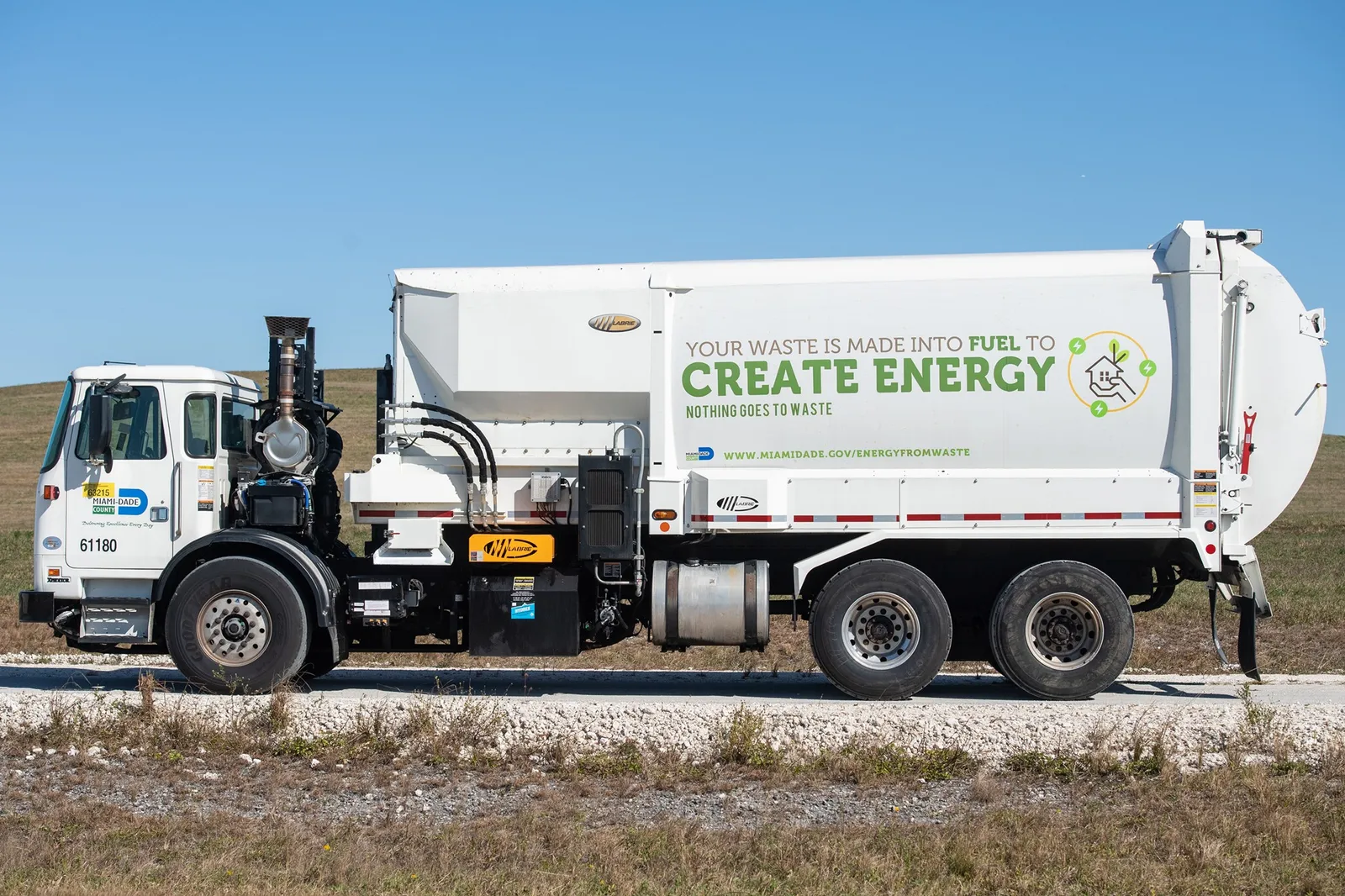
Miami-Dade County still operates its own landfills, but has been sending greater volumes to privately owned landfills due to the lost incinerator capacity.
In March, the board voted to approve a contract for Florida Wood Recycling to process yard waste from the county’s north zone in a pilot program. SWMD estimates it receives over 25,000 tons of green waste at its landfills currently. A separate bid by WM to handle material from the south zone was rejected.
But progress on food scraps has been more complex, as evidenced by what happened with the county not using its USDA grant. Some sources have cited possible permitting issues at Compost for Life’s facility as a factor. The company did not respond to a request for comment.
“We were not able to move forward with this grant for many reasons, including that neither the county nor the partnering businesses could guarantee compliance with all of the grantor’s deadlines and program goals. We needed to ensure that the grant was fully responsive to our zoning and environmental requirements, which is why we are now working through understanding how we can facilitate composting at a greater level while protecting public health and safety,” said Francisco Calderon, communications manager for Miami’s DSWM, via email.
Calderon added that Levine Cava has formed a team “to find new opportunities for composting, by engaging with both public and private stakeholders.”
Part of that grant funding was intended to help dedicate resources to updating permitting regulations. Currently, composting operations on sites with agricultural activities are handled differently than standalone composting sites, which may be handled as solid waste facilities.
Sobel said Fertile Earth has a tree nursery on its property so the composting operations fall under that agricultural exemption. But scaling up and looking at new sites could be hindered by the complex permitting framework. Sobel said she wants to work with regulators to find a solution.
"In Miami-Dade County, if all you do is compost then that's not considered an agricultural activity,” she said, adding that she works to follow the guidelines. "I wouldn't be fulfilling my purpose if I was actively every single day polluting instead of regenerating the earth."
DERM noted that it has previously “pursued policy changes and amended regulations” to support composting operations and remains open to further updates.
DeRoos said he understands the role of DERM and regulators in protecting the environment, and hopes to have more nuanced conversations. He and others also see this as an issue that should be addressed at the state level, which is a priority for the recently-formed Florida Composting Council, especially when it comes to thinking about opportunities for medium-scale composting sites that can handle expected volume growth.
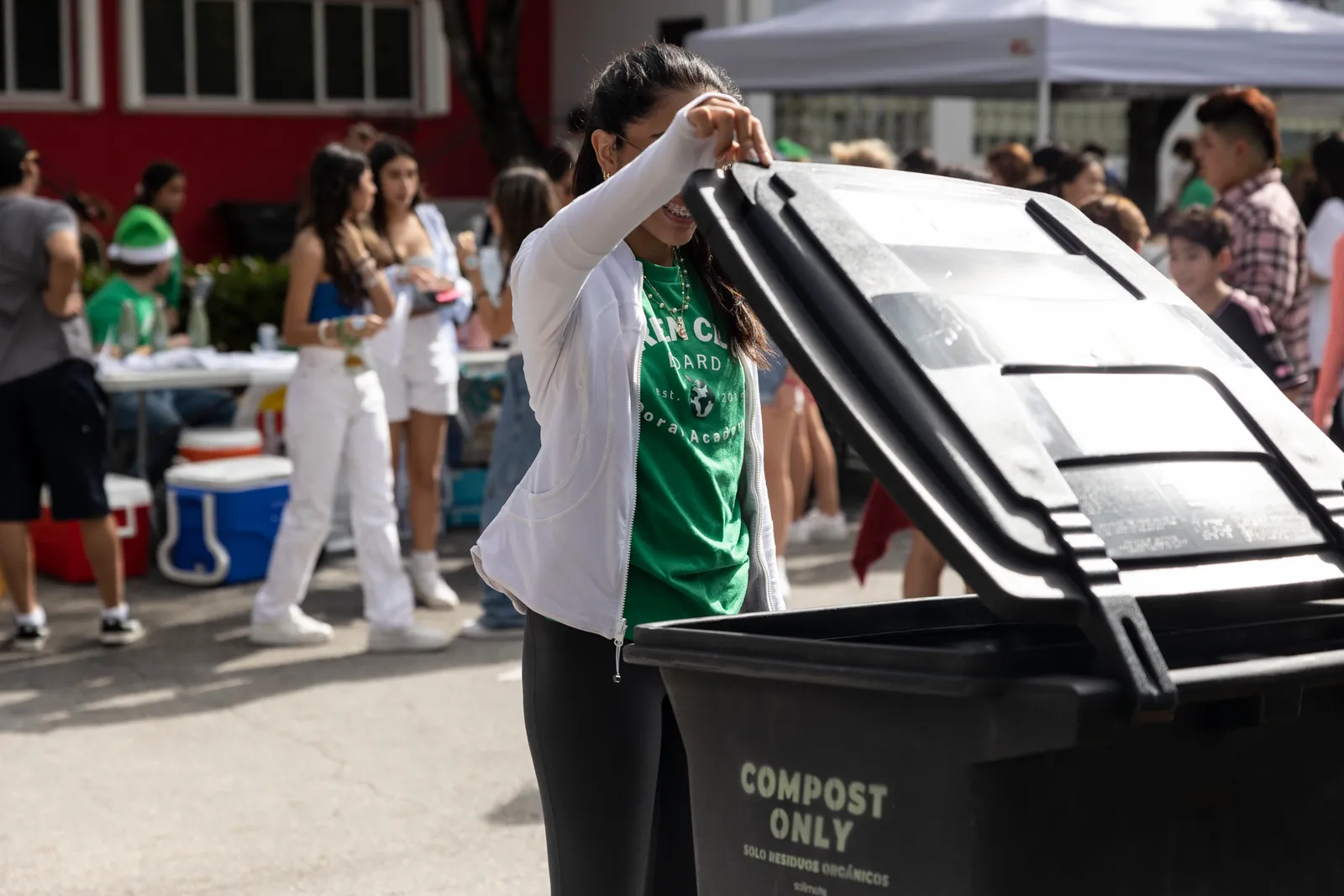
Navigating new areas
Miami-Dade’s debate may be among the most prominent in Florida, but organics recyclers are also engaged with unique policy factors in nearby counties.
For example, Palm Beach County directly prohibits organics recyclers of any size from doing business within its borders. Soilmate said it has turned down customer requests in the county as a result. Dustin Dubois, president of Filthy Organics, said he got a call from the local solid waste authority telling him he had to stop signing up customers because “they own all of the waste within Palm Beach County” and its flow control system directs that material must go to a county-owned incinerator.
Mary Beth Morrison, director of environmental programs at the Palm Beach County Solid Waste Authority, said via email that diverting waste from the system “would jeopardize SWA’s mission and resource recovery responsibilities.”
The SWA currently manages some yard waste via grinding and land application. Morrison said the county “does not have a need to collect food waste separately as it is successfully managed through WTE.” SWA also doesn’t allow community or commercial composting, though backyard composting by residents and institutions is permitted.
This is due in part to the state defining food waste as “garbage,” rather than a “recovered material,” meaning it can fall under such flow control ordinances. While the FLCC is advocating to change that, the issue hasn’t seen much traction to date. Instead, the state and certain county governments have been focused on scaling up new incineration capacity in an area where new landfills are challenging to site and more legacy sites are reaching capacity.
“When there is a need or desire to manage food waste differently, the SWA can do it in an environmentally sound and cost-effective manner that safeguards public health and safety,” said Morrison.
Broward County, though, is seen as a potential opportunity for organics recyclers. The county could potentially see an expansion of its own incinerator or the WM-owned Monarch Hill landfill, known locally as “Mount Trashmore” due to its size.
Officials are working to stand up a new waste authority with the intention of giving local governments within the county more power in a market that has recently lacked competition.
Various groups, including the Organics Recycling Foundation (which partners with Filthy Organics on certain projects), say their advocacy helped ensure that an RFP for consulting services specifically called out organics recycling as a priority. A recent response from SCS Engineers discussed the topic in detail. Members of a working group overseeing this process, such as the mayor of Sunrise, have also come out in support of composting.
Filthy is also optimistic about opportunities in the area. Dubois said the disposal capacity discussion is helping, but composting is still newer territory for some local governments.
"Overall the communities are definitely bullish on composting, but it's a big education piece down here,” he said. “Our waste has never been something that's in our face, and it's always been cheap to get rid of it.”
Renüable, which previously utilized some of Filthy’s composting capacity, agreed.
"The struggles that people are facing with where to site their next incinerator or how to push back on an incinerator is opening up the conversations,” said DeRoos.
As this plays out, composters are focused on growing their customer base and making operations more efficient.
Jo said that until more municipalities or homeowners associations sign on, the lack of scale “still keeps all the routes fairly sparse, it still keeps the infrastructure in an inefficient posture." Further interest from commercial customers is also considered to be key.
"The businesses down here are just starting to really appreciate the importance of it, not only in their own logistics and impact but also in the community also preferring options that consider sustainability as a core belief,” said Jo.



